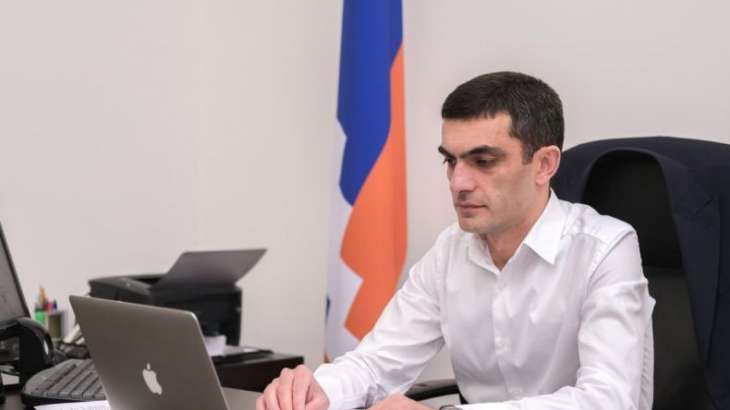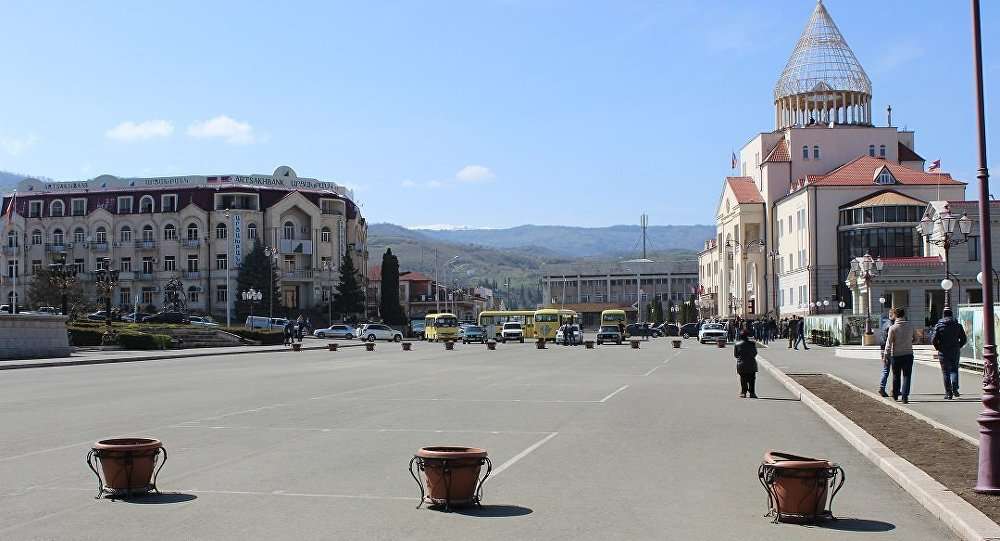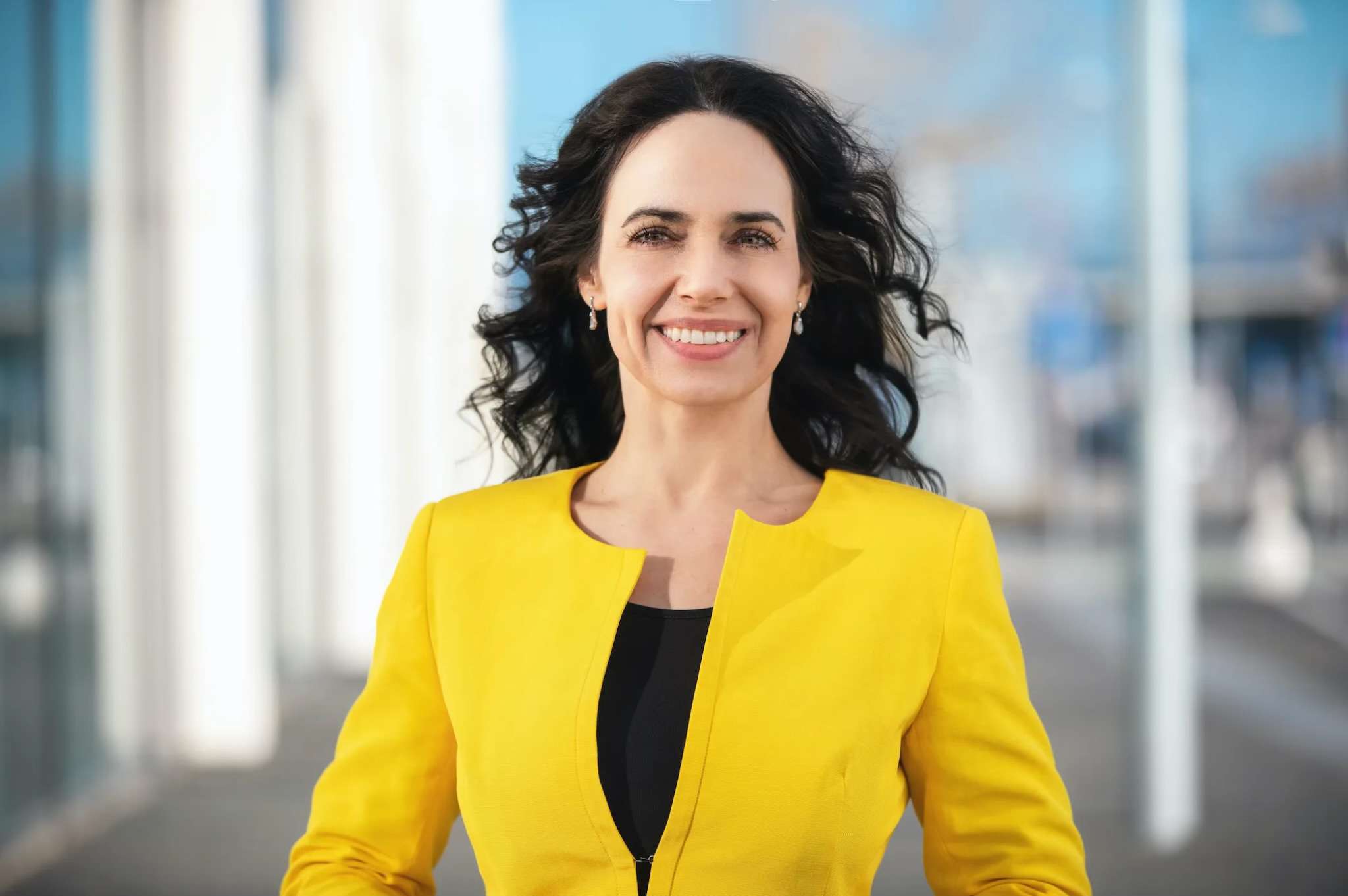The Minister of Foreign Affairs of the Republic of Artsakh Sergey Ghazaryan gave an interview to the Russian "The Moscow Times" online periodical.
- Is it possible that the efforts of Stepanakert and Yerevan on the diplomatic platform force Baku to remove the checkpoint installed in the Lachin region? What tools are there for that? Do you believe that Baku will submit to any demands without force?
The parameters and operation mode of the Lachin Corridor are defined in 2020 by the Tripartite Declaration of November 9, paragraph 6, which establishes the uninterrupted land connection between the Republic of Artsakh and the Republic of Armenia. The control of the Lachin Corridor is reserved exclusively for the Russian peacekeeping troops. However, it should be emphasized that the position and actions of the Azerbaijani side contradict entirely both the spirit and the letter of the Tripartite mentioned above Declaration. In this regard, it becomes an urgent issue to ensure Azerbaijan's strict and unconditional implementation of all the agreements reached within the Tripartite Declaration framework, including the Lachin Corridor provisions. In order to achieve this goal, it is necessary to unite the efforts of Stepanakert and Yerevan and those of the participants of the Tripartite Declaration, who are interested in ensuring stability and maintaining the established obligations.
In addition, international actors who welcomed the Tripartite Declaration and now see it as a cornerstone of the current regional security architecture must also contribute to ensuring regional stability.
The Trilateral Declaration, signed on November 9, 2020, does not imply any presence of Azerbaijan in the Lachin Corridor, let alone the implementation of any supervisory function by the latter. This point of view was reaffirmed on February 28, 2023, by the Minister of Foreign Affairs of the Russian Federation, who, after meeting with his Azerbaijani counterpart, clearly emphasized that the Trilateral Declaration does not provide for the installation of checkpoints in the Lachin Corridor. The legally binding decisions of the International Court of Justice confirm Azerbaijan's obligation to "ensure the unimpeded movement of people, vehicles, and goods in both directions through the Lachin Corridor," which excludes the existence of a checkpoint in the Lachin Corridor.
Since blocking the Lachin Corridor, first under the pretext of an "environmental protest" and then unilaterally setting up a checkpoint on April 23 in violation of the Tripartite Declaration, Azerbaijan has been consistently trying to break the deep natural ties between the people of Artsakh and Armenia, to deprive them of their identity, self-sufficiency, and development opportunities. Azerbaijan consistently and systematically creates unbearable living conditions in Artsakh to force its people to accept its ultimatum demands.
Azerbaijan's blocking of the Lachin Corridor and imposing its position on the people of Artsakh through starvation and coercion are part of official Baku's genocidal policy. Therefore, we speak about the international community's responsibility and, first of all, global actors in preventing the crime of genocide and assume that these states and organizations have the appropriate resources and tools to avoid such a crime against humanity. We hope they will use their entire possibilities to prevent catastrophic consequences.
I want to emphasize once again that the prevention of genocide is not only the right of all members of the international community but also the obligation.
- Is a specific group of officials in Stepanakert responsible for conducting negotiations with the Azerbaijani side?
Since the end of the hostilities in 2020, with the mediation of the Russian Federation, meetings have been regularly held between the Artsakh and Azerbaijani sides, during which several technical and humanitarian issues, including the restoration of vital infrastructures, have been discussed.
Regarding the discussion of political issues, including the comprehensive settlement of the Azerbaijani-Karabakh conflict, we have always emphasized the need for an agreed international format, within which it will be possible to start the search for mutually acceptable, balanced solutions that will ensure a stable, fair and dignified peace.
The Ministry of Foreign Affairs of the Artsakh Republic, in cooperation with other authorized structures of the country, develops and submits relevant recommendations, considerations, and positions regarding the negotiation process to the President of the Republic.
In addition, discussions on critical issues are held with the participation of various political forces and responsible persons, after which appropriate decisions are made.
- What are the red lines of the leadership of Artsakh in these negotiations? Your department has already mentioned that in Azerbaijan territory, meetings without a third party are unacceptable to you. What about the agenda for the talks? What are you willing to discuss, and what are you not?
The people of Artsakh and the authorities know better than anyone the price of peace and war. We are ready to discuss the whole range of complex and painful issues, provided that the course and outcome of the negotiations should not be predetermined. Taking into account that there are many violations of both individual and collective rights of the people of Artsakh by Azerbaijan, explicit international guarantees should be established to realize the rights of the people of Artsakh, including the right to self-determination.
- How do you feel about the proposals of former Minister of Defense of Artsakh Samvel Babayan, who insists on his vision of negotiations?
In the process of developing positions and decisions, the authorities of the Republic of Artsakh always take into account the proposals and views of various political forces and public figures. The President of the Republic has repeatedly and publicly stated that if any of the political parties or other figures have proposals or a vision of a way out of the problematic situation, the authorities are ready to discuss all reasonable proposals within the framework of constructive cooperation to achieve the common goals of the state and the people.
- Is it fundamentally acceptable for you to use the term "integration of Karabakh Armenians" that Azerbaijan uses?
First, it should be emphasized that Azerbaijan uses the term "integration" to cover up its current policy of forcible subjugation of the people of Artsakh and their further expulsion from their historical homeland. Therefore, it is impossible to evaluate terms without considering the purposes for which they are used.
It is more correct to talk about the search for mutually acceptable and balanced formulations, which will be aimed at developing stable and fair decisions and will serve the interests of peace.




















